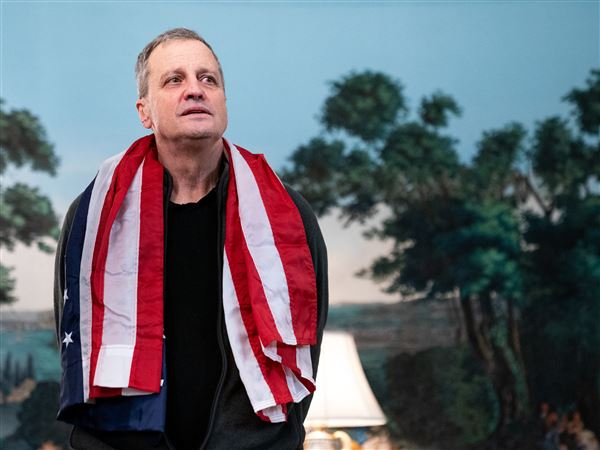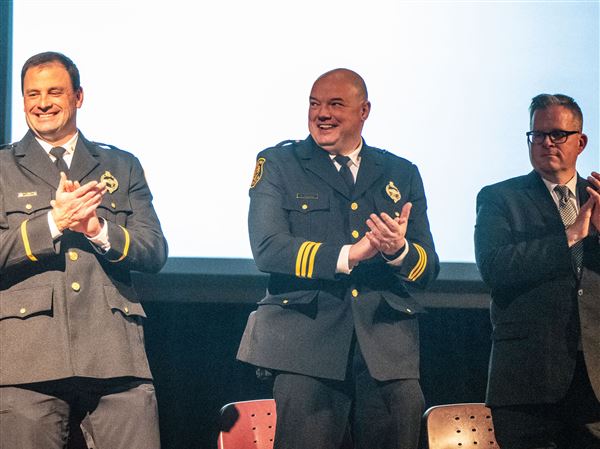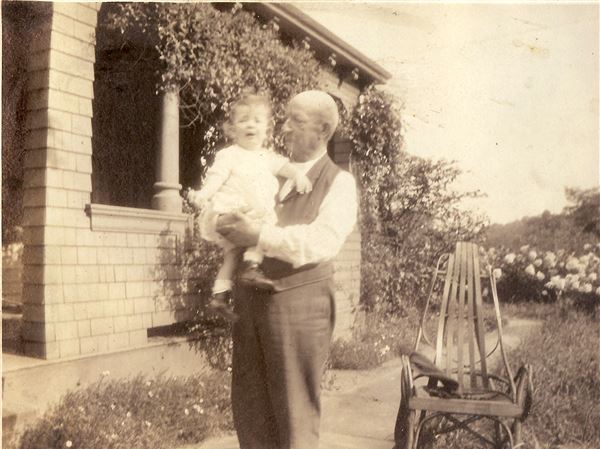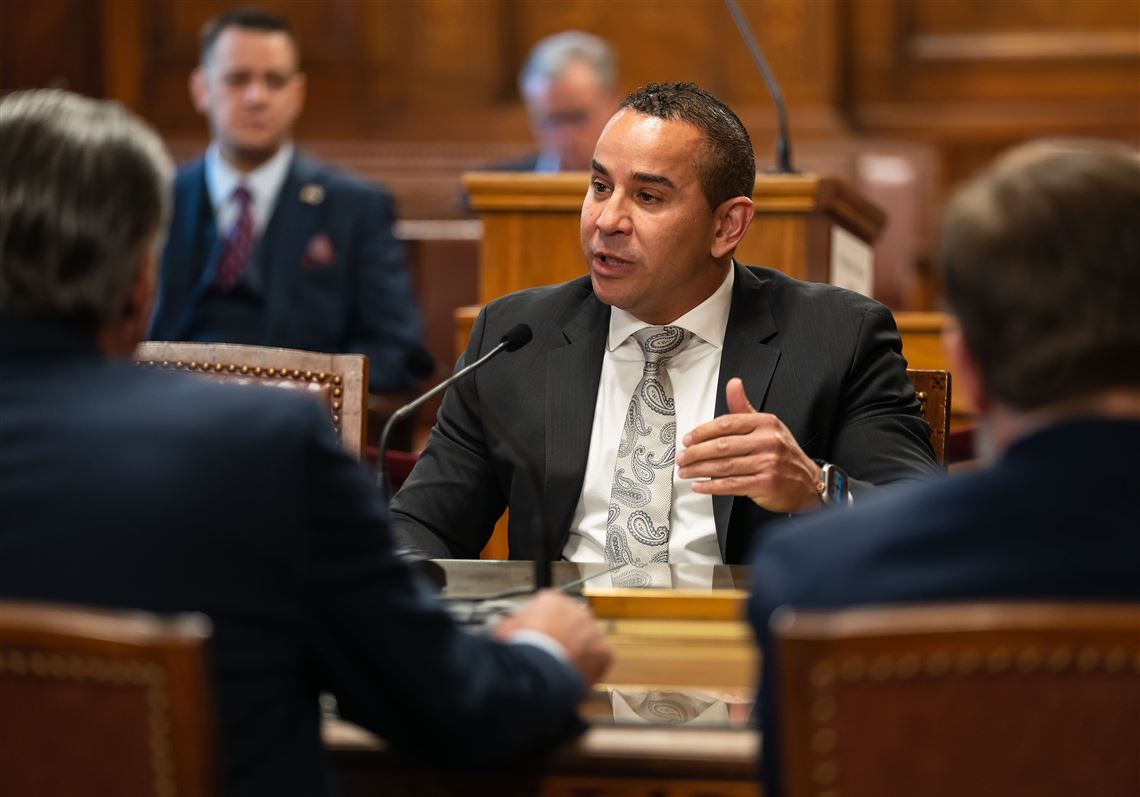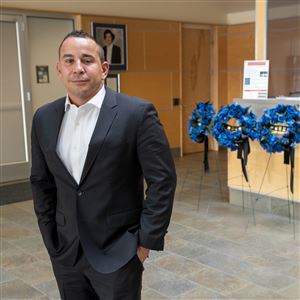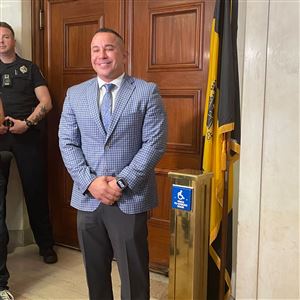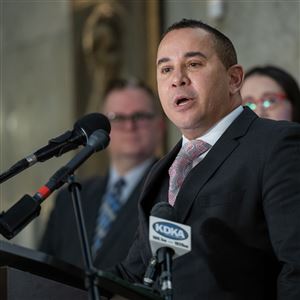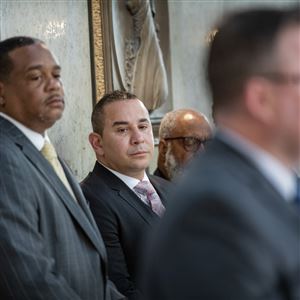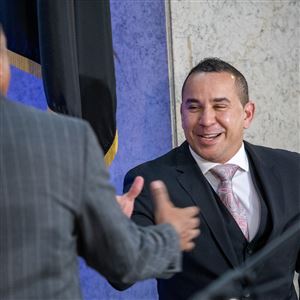Acting Pittsburgh police Chief Larry Scirotto wants to improve officers’ relationships with communities, streamline department operations and shore up police staffing, he said Thursday, as City Council began to formally consider his nomination as Pittsburgh’s next top cop.
Mr. Scirotto, who is acting chief until City Council confirms his appointment, said a top priority is strengthening relationships between police officers and the communities they serve. Part of that comes from shifting officers' mindsets from “warrior” to “guardian,” he said.
“For decades we’ve talked about and discussed” the war on crime and the war on drugs, he told Council members in a public interview Thursday. “But when should a police department ever be at war with its community? We are guarding our communities.”
Council could vote to approve Mr. Scirotto as police chief as early as Tuesday.
Mr. Scirotto said he also wants to make changes to police deployments to improve officers’ focus on community engagement.
Currently, some police are “community resource officers,” who often meet with residents to discuss their concerns. Mr. Scirotto wants to eliminate that designation and make it the responsibility of all officers.
“When we create these units, it says to the rest of the rank and file that [community engagement] is not their responsibility,” Mr. Scirotto said.
“They should all be community resource offices,” he added, “and they should all have that level of engagement and awareness for the neighborhoods.”
He also wants to streamline the department’s day-to-day operations by “un-obligating” officers’ time. The calls officers responded to most often last year were parking complaints and burglary alarms. Thousands of hours are wasted on those two types of complaints because they could be handled without police, Mr. Scirotto said.
Other entities such as the Pittsburgh Parking Authority could theoretically handle parking complaints, he said, and the bureau could also shift to a two-factor authentication process to determine if an alarm is falsely triggered — rather than sending officers to the scene immediately.
“We are taxed to the limit on a daily basis,” Mr. Scirotto said of the department’s resources. “My commitment is that we start finding what response looks like today, in a police department with the numbers and resources that we have, that focuses on violent crime reduction [and] community police partnerships.”
Pittsburgh currently has about 800 officers, but the department is budgeted for about 900. City officials have frequently voiced concerns as the number of officers has dwindled.
The union representing city cops secured a new contract this year that includes pay raises, which Mr. Scirotto said would help with hiring and retention. But there should also be a focus on officers’ wellness and creating an environment that values them, he said.
Mr. Scirotto said he also wants to make a more concerted recruitment effort, particularly to attract a more diverse group of officers by focusing on communities that “are underrepresented in the police academy.”
He said the bureau does “an exceptional job” engaging with kids under the age of 12, but that it needs to better reach teenagers who may want to join the force after high school.
“It’s our responsibility to seek those interested in our profession,” Mr. Scirotto said.
Operationally, Mr. Scirotto wants to shift to a more data-oriented method of evaluating law enforcement outcomes. For example, the bureau could set metrics for “what violent crime reduction looks like” and then analyze whether or not strategies are working, Mr. Scirotto said.
“Policing generally, because of the way we are funded, doesn’t have an accountability system to the taxpayers,” he said. “[To be] a far more accountable organization, it’s important to be transparent in transmitting that data to our community and governing bodies.”
In partnership with the county’s Department of Human Services, the department tracks violent crime through an online database. Mr. Scirotto said he would be open to also sharing other statistics such as traffic stops, arrests and incidents when officers used force.
Council members asked Mr. Scirotto about some controversies surrounding his last job, which started to emerge even before he was nominated by Mayor Ed Gainey earlier this month.
Mr. Scirotto has an active wrongful termination lawsuit against Fort Lauderdale, Fla., after he was fired as police chief there amid allegations that he favored non-white candidates in hiring decisions.
“I promoted 15 people. Nine of the 15 were white men, six were minorities,” Mr. Scirotto said Thursday. “To suggest that I chose unqualified people to sit in these seats is disingenuous and just an outright lie.”
Mr. Scirotto has also drawn criticism at times for his side-gig as a college basketball referee, both during his previous stint with the Pittsburgh police and while in Fort Lauderdale.
Mr. Scirotto said Thursday that he will no longer be a referee while serving as police chief.
“I’ve been privileged to do two things that I love,” he said. “I’ve never had to choose between the two.”
He said he is now choosing the job that’s “much more impactful to society,” and that the sacrifice is “worthwhile.”
Hallie Lauer: hlauer@post-gazette.com
First Published: May 18, 2023, 8:23 p.m.
Updated: May 18, 2023, 8:28 p.m.
